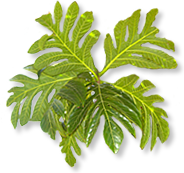Life in the Soil Environment
TPSS 480
Faculty:
Nhu Nguyen
Goals:
1. Acquire depth and breadth of knowledge about the biology of diverse groups of organisms that dwell in the soil, the roles that they play in manipulation of essential ecosystem processes, and how they contribute to overall soil health.
2. Integrate important principles as well as methodologies from various disciplines within life sciences such as ecology, evolution, biochemistry, organismal biology, and genetics to explain the life in the soil.
3. Analyze and contextualize the potentials of soil organisms and how they contribute as well as damage natural environments, affect human society, and affect the overall future health of the planet.
4. Develop solutions using soil biology to solve impending societal and environmental issues.
5. Demonstrate skills in speaking, listening, questioning, and leadership.
Skills and knowledge to be acquired:
1. Demonstrate understanding of soil biology from genes to ecosystems and how it is fundamental to the health of soils and agriculture. 2. Demonstrate the ability to critically evaluate scientific evidence and evaluate issues associated with soil biology and how it might be applied to modern agriculture. 3. Demonstrate the ability to identify problems and develop solutions using the fundamental principles associated with soil biology to solve agricultural and environmental issues. 4. Demonstrate proficiency in oral communication and leadership through group discussions and general classroom participation.
Description:
The soil is arguably one of the most important resources available to humanity. It is the foundation in which most of the plants (including food crop) on the planet can be found and a cradle of an incredible diversity of life on this planet. In this class, we will use a multidisciplinary and integrative approach to understanding of the continuum of life in the soil: viruses, bacteria, archaea, fungi, protists, and invertebrates. We will learn how they function alone, in context of each other, and together how they cause huge changes in both natural and human-influenced environments.
Pre-requisites:
TPSS/PEPS 371 or BIOL 375, or MICR 351, or consent
Cross-Listed courses:
BIOL 480
Text(s):
Richard D. Bardgett. The Biology of Soil: A Community and Ecosystem Approach. ISBN 0198525036. This text is optional. Slide presentations, relevant reading, videos, and other enrichment material will be provided.
Field Trips:
TBA
Course organization:
The course consists of 3 hours/week lectures. There are 2 exams and a final, totaling 3 exams that accounts for 75% of your grade. Exams will assess your various thinking skills with multiple choice, short answers, true/false, fill in the blanks, matching, and short essays. There are five quizzes that are given periodically throughout the semester that account for 20% of your grade. These quizzes will vary in the types of questions (as in the exams) to challenge your thinking skills in the relevant topics throughout the semester. Discussion participation is worth 5%. Each student will be required to lead at least one discussion session and points are earned based on leadership effort as well as engaging in discussions while not leading. It is recommended that you take this class in conjunction with the accompanying lab.
Grading:
Grading components:
Exams (3) 75%
Quizzes (5) 20%
Discussion 5%
_______________________
Total 100%
Letter Grade Assignment:
A+= 97-100, A= 93-96, A- = 90-92
B+ = 87-89, B = 84-86, B- = 80-83
C+= 77-79, C = 74-76, C- = 70-73
D+ = 67-69, D = 64-66, D- = 60-63
F = <60


